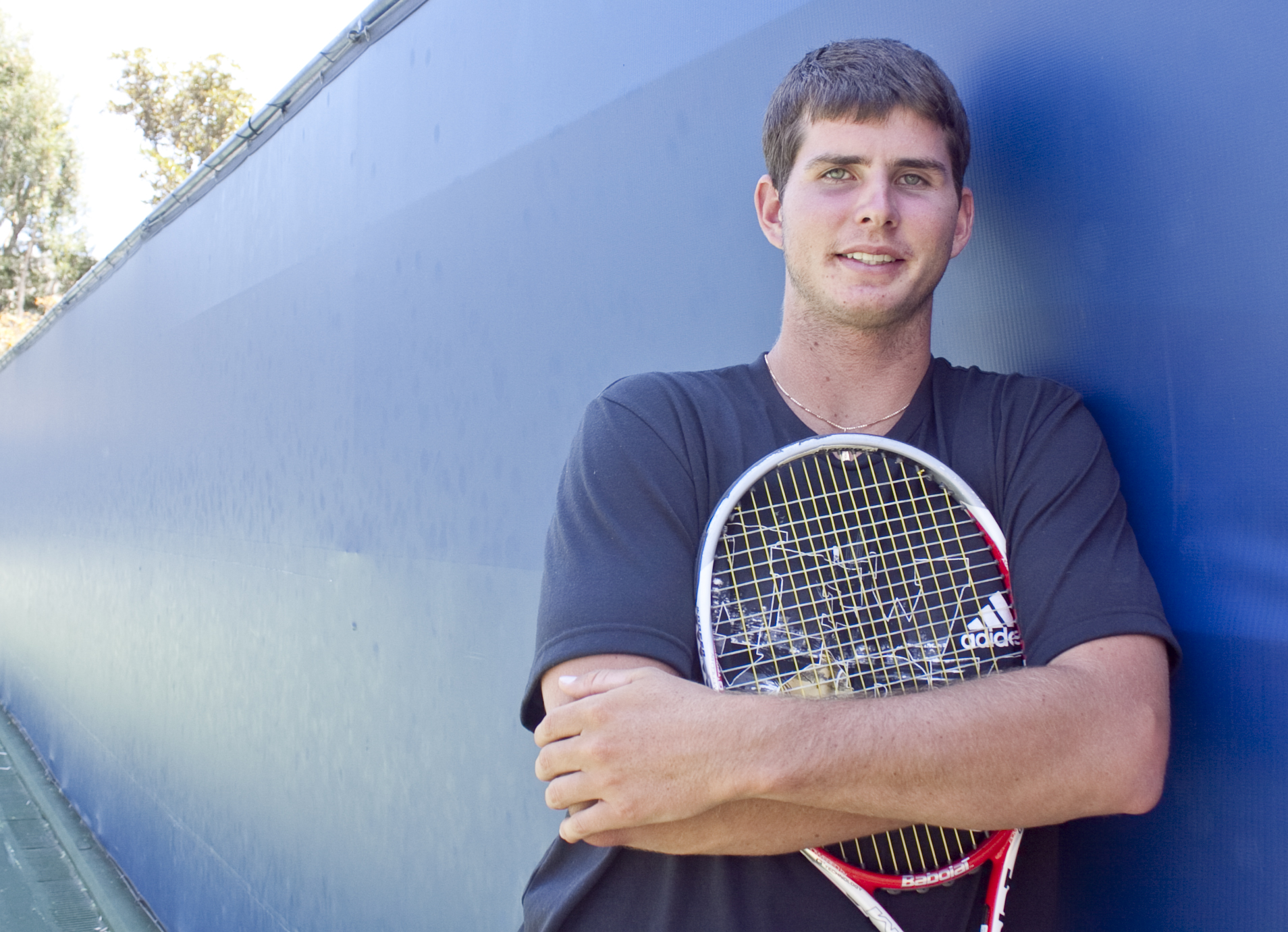Prior to the 2012 U.S. Open, Dennis Novikov was not sure he could ever succeed in becoming a professional tennis player.
His doubts were erased after defeating a top 100 player in his first Grand Slam appearance, with his subdued reaction displaying the single-mindedness, if not the joy, of a man making strides toward his life’s suddenly realized calling.
“When he won, he smiled. But he didn’t fall on the ground or jump up and down. I know … that he was enjoying (the moment), but I think he knew that it was the beginning of a long (professional tennis career) for him,” said his mother, Irene Novikov.
The rising sophomore’s victory represents the peak of a summer that featured Novikov winning the nation’s most prestigious junior tournament, scoring victories in his first two Grand Slam appearances and coming within two sets of facing the world’s No. 2-ranked player, Novak Djokovic, at the U.S. Open.
Despite Dennis Novikov’s wealth of experience competing on the ITF Futures circuit, which includes professional-level tournaments, Irene Novikov admitted that her son seemed to be the only person in the family not shocked by his four-set triumph over Jerzy Janowicz in the U.S. Open’s first round.
Novikov said he felt energetic and had fun competing with some of the world’s best, but had no trouble minimizing his visible excitement of besting the No. 86-ranked Janowicz. He also recognized that keeping his joy largely on the inside made for better tennis.
“You don’t want to waste too much energy doing unnecessary things,” said Novikov, who was congratulated by Mardy Fish, the world’s No. 25-ranked player, after the match.
Getting starstruck at the U.S. Open was no problem for Novikov, having already been in the presence of Roger Federer and Rafael Nadal, the faces of tennis, in his lifetime.
Novikov punched his ticket into the U.S. Open’s main draws by sweeping the singles and doubles championships at the USTA Boys’ 18s National Championships in mid-August.
In addition to his U.S. Open singles win, Novikov teamed up with Duke freshman Michael Redlicki for a doubles victory.
Novikov fell to Julien Benneteau, the world’s No. 35 player, in the second round. The rising sophomore failed to capitalize on a first-set win and dropped the final three sets, which included a third-set tiebreaker in which he only scored one point. After falling behind 0-2 in the final set, Novikov clawed his way back to take a 5-4 lead, but lost three straight in closing the match. The Bruin gave Benneteau all the credit for the singles loss.
“Throughout the whole match I was playing really close with him. … I had opportunities to break points, (but) he was serving really great,” he said.
The San Jose native’s serve helped keep him competitive. He took a 4-3 lead in his final set against Benneteau on the strength of consecutive 129- and 130-miles-per-hour serves. Novikov finished third in aces after the U.S. Open’s first round, ahead of 6-foot-9 big-serve maestro John Isner, the world’s No. 10-ranked player.
“He’s got great service motion,” said Nick Meister, Novikov’s former UCLA teammate and doubles partner. “Novikov is very aggressive. You don’t see (serves that fast) too much in college.”
Irene Novikov noted how her son maintained his business-like approach in response to his first Grand Slam loss.
“He started talking to his dad right away about why he lost, and what he should have done,” she said. “He was making more of an analysis for the future than (saying), “˜This is a loss, but it’s a good loss.'”
Dennis Novikov and Redlicki were eliminated from the doubles draw the next day, but Novikov found plenty to take away from his first U.S. Open.
“Being there in that environment with all the (big-time players) watching, (and seeing) how they train and prepare for matches was an educational experience,” he said.
Thus far, Novikov’s U.S. Open run is the height of a lifetime dedicated to refining his game and the calm demeanor typically associated with a seasoned veteran. Being the son of a tennis coach, Novikov first picked up a racquet and started hitting balls over the net by 3 years old, just two years after most people learn to walk. “My dad used to coach my brother (who was a teenager), and I was always around. I grew up on the court,” said Novikov, who established his love for tennis by winning numerous sectional tournaments throughout his junior career and competing internationally by the age of 14.
He credits his experience handling and passing the puck in junior hockey with being instrumental in the development of his strength, along with racquet control, volleys, drop-shots and other “feel”-based skills.
Novikov parlayed his stellar junior tennis career into the No. 3 spot on NCAA semifinalist UCLA last season. The Bruin joined the squad late into the year, but had no trouble fitting in with “a good group of guys” that brings out Novikov’s emotional investment in the game and true personality.
“He’s very outgoing,” Meister said. “When he sees a teammate do something well at the NCAAs, he lets (him) know he’s happy with them and supportive. He saves it for the big occasions.”
Though Novikov’s breakout summer proved that he can hold his own against professionals, he does not feel compelled enough to walk away from UCLA. Novikov said he can still improve much, especially his court movement, before going professional.
On-the-court coaching, more experience in pressure situations and a team atmosphere with infectious energy all draw the Bruin back to his team.
Delaying his professional status may not fit the fast starts Novikov is known for, but he sees the value in all the baby steps to growing into the player he wants to be.
